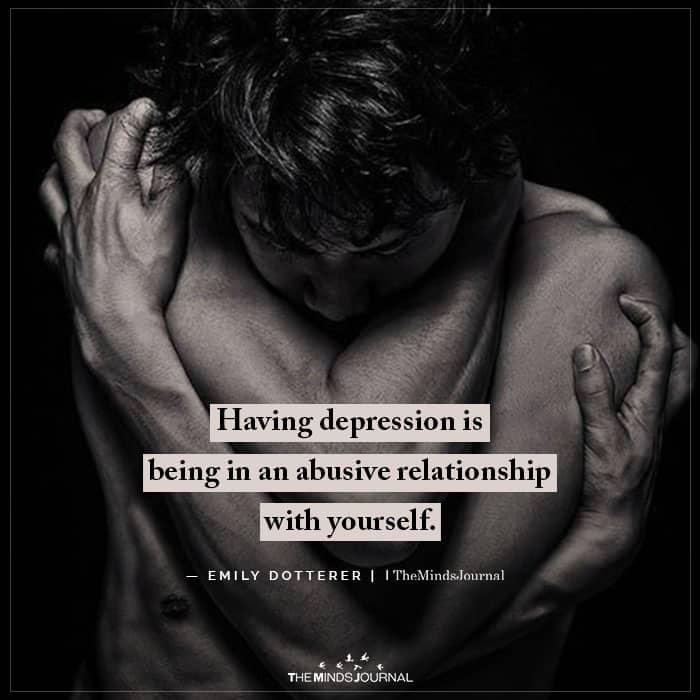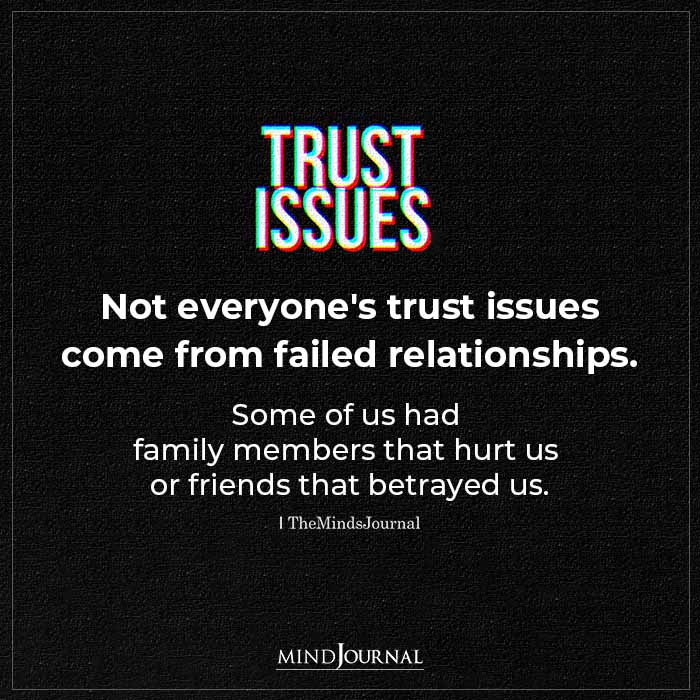Even with the highest of intentions, we are still raising our young from old paradigms that don’t work for evolving children. The fact that teenage depression and suicide are on the rise tells us that something is very wrong.
It is easy to say that depressed kids lack self-esteem — and of course, this is true — but we need to ask why? There is a blatant and glaring reason that an epidemic of depression infiltrates our young. If you are a parent, this might be a difficult topic to embrace because it often makes us feel powerless, but when you understand the real reasons why kids are chronically depressed, you have the power to help your child turn it around.
I was a suicide outreach counselor in New York for seven years. During this time, I counseled depressed and suicidal adolescents from ages 11 to 19 years old. They told me things that they dare not tell anyone else. Every single one of these children was stressed out about school, whether they were doing well or not. These same children felt as if they had parents who judged them and with whom they could not confide. These kids felt overwhelmed and alone – and each one of them was sure that they would fail in life.
It’s not teen heartbreak that makes children suicidal. It is the ongoing stress and pressure of school and parents.
Yes, as parents we want what is best for our children and we want them to grow up to be successful, but maybe our ideas of success are actually killing them. We come from an old paradigm that says, “Do good in school, get into a good college, make a good income doing whatever you need to do in order to survive, and hopefully after retirement, you will have a few good years to enjoy what is left of your life.”
We instill fear in our children by telling them that if they don’t get proper grades, their lives are doomed to failure, but failure to what? Failure to living a joyless life. Then I say, go ahead andfail!!!
Out of our own fear, we make the idea of success more important than the spirits of our precious children. But, do grades really matter more than the emotional well-being of your child? Do you want a half-dead child with an A average, or a joyful and awake child with profound knowledge that is beyond traditional education?
I’d much rather have a child who knows his worth and knows that he can go out in the world and create anything, than a child who blindly follows along only to experience a mid-life crisis that lasts his whole life. Let’s wake up!
We’ve got it wrong and our parent’s parents got it wrong. Let’s put a halt to it right now, and stop doing what doesn’t work.
I am sharing this, not to blame anyone, but rather to inspire parents and care-givers to embrace a new paradigm that empowers our youth to wake up, step into their power and ultimately live joyful and fulfilling lives.
If we understand why our children are depressed, we have the power to help them awaken from depression, and be who they came here to be.
Read 4 Common Symptoms Of Depression In Children
Although the dynamics can be complex, there are three elements that add up to teenage depression:
- Feelings of unworthiness
- Feelings of powerlessness
- Not having access to unconditional support of an adult
Feeling unworthy, powerless and alone is the breeding ground for teenage depression.
Wounding the Worth
Everywhere you look, children are relentlessly judged. Schools, religions, cultures and parents all judge children and tell them who they should be and how they should act, and if they fail to meet these expectations or requirements, they are punished, not just by losing privileges or failing in some way, but especially in the withholding of love, approval, and acceptance.

We don’t usually think of it this way, but the by-product of judgment is actually the withholding of love, approval and acceptance. When these emotional needs are withheld by judgmental parents and caretakers, children often believe that they are unworthy. To make matters worse, the human psyche interprets judgment as rejection, and more proof that the one being judged is not worthy – cutting to the soul of a young person who is naturally trying to find himself.
When children don’t feel worthy, they withdraw and go inside – we call it depression but it is actually a survival mechanism where they protect themselves from further rejection that comes in the form of judgment.
Virtually every emotional wound can be traced back to feelings of unworthiness. Feeling unworthy is the core wound of all wounds. The constant judgment that children go through on a daily basis often results in deep emotional wounds that effect the child all the way into adulthood and through his/her whole life.
You may not have much control about what goes on in school, but how you parent at home can make all the difference to the emotional well-being and development of your children.
Read When the Going Gets Tough: How You Can Help Children Build Resilience
We certainly don’t mean to wound our children. When we judge our kids, our intentions are often out of love and because we think that we know what’s best, but you cannot mix judgment with love. As soon as you judge, even if it is in the name of caring, love is no longer present. Our parents judged us out of love so we have entangled love and judgment together but it is time to dis-entangle, and free our children from the emotional prison of judgment.
Often we don’t even realize when we are judging. Judgment includes criticizing style, attitude and personality and focusing on what you don’t like about your child, her behavior, or any issues of lack or not being enough. If your child closes up or snaps at you, there is a good chance that she feels judged. Much of what we consider normal adolescent “bad behavior” is really a result of kids feeling judged and disrespected by adults.

Judging your child for not living up to his potential is really just a nice way of saying your child is not living up to your expectations. It is hard to believe but some children would rather die than disappoint a parent.
Even if you don’t verbalize judgment, your children can still feel it in your energy. You cannot hide judgment – it goes out energetically in your field and everyone feels it, even if you think that you are keeping it to yourself.
Read How Parents With Core Shame Can’t See True Essence Of Their children
Making Kids Powerless
No where do we teach children about their intrinsic power as creators. Instead we teach them that they are not powerful and they can’t be trusted.
- When we don’t encourage our children to make their own choices, they get the message that they are powerless, and as a result they are cut off from their intrinsic power to later create the lives they desire.
- When we don’t trust our kids to make the right choices or even to make the right mistakes, they learn that they cannot trust themselves.
- When we force our children to do things against their will, we train them to do what they are told, rather than listen to their own inner being.
What Your Child Does to Himself
With so much stress and pressure from the outside world, to do well in school and to fit in, children take it all on and do to themselves what the world is doing to them. In other words, they worry with chronic persistence which results in tremendous stress.
As we are not meant to live in fear every day, too much of this stress can result in physical and mental disease. The body, however, has a defense mechanism against the chronic stress caused by incessant worry. That defense mechanism is depression. Depression also allows a child to shut down the negative input from those around him.

Why Children Lie…
If you punish or judge your children when they tell you a truth that you don’t like, they will ultimately lie to you. This means that if your child lies to you, it is your fault. At any age, if you feel as if you will be judged because you have been judged by this person in the past, even if it is your mother or father, you are going to lie in order to protect yourself from judgment – from what feels like rejection, and a sentence of unworthiness.
It is a much better parenting strategy to raise children who feel as if they can talk to you about anything. This means that whatever happens or whatever they do, they can sit down and openly speak with you, without worrying that you will judge them or tell them what to do. And, then you get to be an influential parent – by really really listening, offering love and compassion, and guidance.
Read 6 Ways Parents Can Communicate With Their Teenagers Better (According To Teens)
You are not going to stop your kids from having sex or doing drugs if they want to, but if you cut off the lines of communication because you judge them, you won’t have any ability to offer wisdom, guidance or support. Your kids will basically be making their own choices without you on their side.
It is inevitable that your children will face some big decisions in their young lives. Would you rather be a parent with whom your children can speak and ask for guidance, or a parent they can’t open up to?
Yes, your children will likely experiment in ways that make you feel uncomfortable but that is part of growing up. You can provide so much more as parent if you are a parent your kids can trust “not to judge.”

Your most important tool as a parent is communication – so, why in the world would you want to stifle it with your judgment? The only way that you can support your children to make good choices is if you are a good model for self-empowerment and the lines of communication are open. Open communication is priceless.
Read Mindful Parenting: How to Raise Kind and Conscious Teens
Why Forbid When You Can Empower?
If you forbid your children to do anything, the natural instinct is for them to want to do it – and quite possibly to actually do it. At sixteen, I ran away from home because my mother forbid me to date this boy she didn’t like. If she had given me the freedom to make my own choice, I probably would have ended the relationship much sooner than I did. If you give your kids the space to make their own choices, there is a very good chance that they will set boundaries for themselves.
One of the most powerful parenting tools is asking the right questions that will incite your children to find good and healthy answers that fit for them. For example, if your child is contemplating what might be considered “risky behavior,” instead of forbidding your child, you might ask him/her:
“What do you think might be some positive and negative outcomes, if you ….?”
“If you removed peer pressure and you thought for yourself, what would you want to do?”
“What choice do you think supports you and your future self the most?”
Ask your child to imagine saying “yes” to the behavior, and following it through to an outcome so that he can future tense the behavior. Then ask him to imagine saying no, and do the same.
Read Migraine Pain in Kids and Teens: Things You Need To Know
At that point, you can ask, “What feels better for you, and why?”
Even if your teen does partake in “risky behavior,” if you have been an awake and supportive parent, chances are he/she will speak with you openly, and it can become an opportunity to help your child grow, and make better choices in the future.
I will be the first to admit, I am a very radical parent, and it took a great deal of courage to parent in this new paradigm, but I now have three grown happy children who know their intrinsic worth and their power to consciously create their lives. Along the way, I discovered that in order to teach my children about their own worth and power, I had to know it and live it for myself. Inspired Parenting requires that you grow and develop every step of the way.
You might be concerned that if you allow your children to make their own choices and think for themselves, they will be out of control. As you may know, the Amish are one of the most conservative cultures on the planet. But did you know, when the Amish children reach the age of about fourteen, they are allowed and maybe even encouraged to go out into the world and experiment with life. This means that sex, drugs and rock and roll are all on their menu of possibilities. The point is, they must choose the Amish tradition for themselves and the only way that they can do so is if they have the free will to make that choice. The interesting part is that ninety percent of the kids consciously choose to go back into the Amish tradition.
As parents, we don’t own our children. We are guardians, mentors and cheerleaders.
Your Guide for Empowering Teens
Although this is geared for teens, much of this guidance is appropriate for children of younger ages as well.
1. Ask for Feedback:
It is likely that you don’t realize when your children feel judged or dis-respected. Therefore, it is an empowering idea to ask your children, “Please let me know if you feel judged or dis-respected by me.” When your child does give you feedback, don’t react – don’t justify or deny. Instead, pause and examine your previous words and attitude. If you are uncertain, ask your child for further feedback. It is not up to you to decide if your child feels judged.
Read What Not To Say (And What You Should Say) To A Person With Depression
2. Trust:
When kids feel as if their parents trust them, they gain the confidence to trust themselves. Don’t make your child have to prove that you can trust him. This just sets you both up for failure. Your child will likely make some “bad” choices, trust him anyone. The more you trust him, the more trustworthy he will become.

3. Think Positively:
Teach your kids to think positively, and to look for the good that can happen. Instead of imagining what they don’t want, invite your kids to imagine what they dowant. Also, learn to model this behavior.
4. Make Agreements:
Make agreements with your kids that allow them to retain their power. For example, instead of telling your kids what time they need to go to bed, negotiate the time and have them agree to it.
5. Focus on the Good:
Make a list of all the positive attributes of your children, and each day re-read the list. When you see your children, remember these attributes and compliment them often.
6. Surrender Criticism:
Don’t criticize your child’s clothes, hair or room. Especially don’t criticize their friends. When you criticize your child’s friends, your child takes it personally and will likely alienate you.
7. Put Your Child First:
Separate your child’s “performance” from his/hers intrinsic value. This means that you must stop making grades more important than your child’s emotional well-being and that you do not punish your child for not doing well in school. Take the pressure off.
Speak to your child and find out what your child wants and then do your best to explore options that support their choices – which could be very different than the ones you had in mind.
Read How to Raise Emotionally Intelligent Children: 3 Crucial Lessons
8. Think for Themselves:
Encourage your children to think for themselves, and to be individuals who don’t make choices based on fear or peer pressure.
9. Emotional Needs:
Show your children how to meet their own emotional needs – giving themselves approval, acceptance and love. Teach your children that they don’t need the approval of anyone in order to be worthy – not even yours.
10. Speak with Respect:

Speak to your children with respect. If your children feel as if you really respect them, it will go a long way in opening up the lines of communication.
11. Room for Expression:
Allow your children to be who they are – this might mean that they experiment with some unusual looks and behaviors, but that is just part of growing up. In fact, inspire your children to express themselves and be authentic – even if it means green hair and purple pants.
12. Share Your Beliefs, but…
Yes, share your religious, cultural and moral beliefs but don’t force your beliefs on your children. Give them the space to discover their own.
13. Express Emotions:
Your home should be a safe space to feel and express emotions. If your kids are ridiculed or undermined by any household member for sharing emotions, they will close up, and retreat.
Read Conscious Parenting: The Art Of Raising Happy Children
14. Participate:
Regularly participate in things that your child likes to do – yes, even if it is video games. The more connected your child feels to you, the more likely he will speak with you.
15. Show Love:
Show your love and appreciation for your child every single day – even if she seems to ignore you, it is getting through.
16. Don’t Dump:
Don’t share your problems with your child. Children feel responsible for their parents and if you dump your issues on them, it could lead to an emotional breaking point. Also, if your kids feel you have too much to handle, they won’t want to burden you with their problems, and they will not speak with you, when they really need to.
17. Household Participation:
Every member of your home should be participating in the running of the home. Negotiate your child’s household jobs and have them agree. Yes, you may still have to ask your child to clean the dishes three times before they do it, but don’t take it personally, and don’t entangle teenage procrastination with the worth of your child.
18. Go Inside:
Teach your children to quiet their minds and go inside for the answers that they are seeking – and to trust themselves above and beyond all else.
20. Family Mottos:
Create family mottos like, “Things always work out”, or “you can do anything you put your mind to!”
And Finally…
If I were to speak to a high school auditorium, I would say, “Each one of you is unconditionally worthy right now. You are not here to please anyone or live up to anyone’s expectations. This means that you don’t have to prove your worth to friends, teachers or parents. Your only job is to be yourself and to discover who you really are. You are powerful creators and you have the inherent ability to create anything that you desire in life.”
As evolving parents, it is time to teach our children to claim their power and worth and to be who they came here to be!
Written by: Nanice Ellis
Originally appeared on: Nanice.com
Republished with permission









Leave a Reply